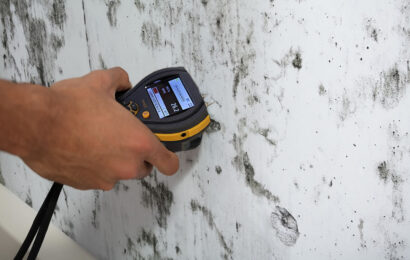Showing 1-13 of 13 results
Advanced Mould Testing Technician Course
The Advanced Mould Testing Technician course (10913009NAT) is the only government accredited training in Australia to certify mould assessors (indoor environmental professionals). It has been developed for building managers, trades (building and construction), loss adjusters, industrial hygienists, mould remediators, professional cleaners, building biologists, pest controllers, health practitioners and anyone who…
Decluttering Course
Decluttering Course Nationally Recognised Decluttering Course: Decluttering is the process of organising and removing unnecessary items from a space. It involves evaluating each item and deciding whether to keep, donate, sell, or discard it. Decluttering can be done in any space, such as a home, office, or even a digital…
Geomancy Refresher Course
For more information on this course, call us on 1300 889 845 or email nicole@aces.edu.au.
Sacred Space Refresher Course
For more information on this course, call us on 1300 889 845 or email nicole@aces.edu.au.
Feng Shui Refresher Course
For more information on this course, call us on 1300 889 845 or email nicole@aces.edu.au.
EMF Refresher Course
WHY DO THE EMF TESTING REFRESHER COURSE? Prerequisite: successfully completed the Electrobiology subject CPD Points: 20 (ASBB) Duration: 20 hours EMF testing is one of the most challenging skills we undertake as Building Biologists/EMF testing technicians, and the past five years has seen an explosion of Wi-Fi-enabled digital devices flooding the…
Mould Refresher Course
Gone are the days that we do a couple of samples, confirm the house has a mould issue, provide a general report that could apply to almost any house, and pass the buck to a remediator. Your job is far more complicated than that. WHY DO THE MOULD TESTING REFRESHER…
Mentorship Program
What is the Mentorship Program? The Mentorship Program has been specifically designed for ACES graduates* to enable them to participate in group discussions to problem-solve challenging case studies, gain a second opinion and listen to industry experts about recent developments in their field. Abit like a coach. New to the industry…
Building Biology Course
“Building biology is the evaluation of health hazards like allergens, toxicants and electromagnetic fields in the built environment, and provides strategies to address exposure and/or source control and abatement”. Nicole Bijlsma. What is Building Biology? Building biology is a science that investigates the health hazards in the built environment. This…
Feng Shui Course
Feng Shui is the art of creating environments that support the mind, body and soul. Utilising the principles of form, compass and flying star school, geomancy and the ancient art of space clearing, learners will gain the knowledge and the skills to transform a house into a home that supports…
Mould Testing Technician Course
The Mould Testing Technician unit (10913005NAT) is the only government accredited training in Australia to certify mould assessors. It has been developed for building managers, trades (building and construction), loss adjusters, industrial hygienists, mould remediators, professional cleaners, building biologists, pest controllers, health practitioners and anyone who wants a career assessing…
Electromagnetic Field Testing Technician
The Electromagnetic Field Testing Technician course provides the theoretical and practical knowledge to conduct electromagnetic field testing of the built environment and provide strategies to address exposure and/or source control and abatement.You will learn about the impact of AC magnetic fields and radiofrequencies on human health, identify and quantify the…
Designing a Healthy Home
40% of new builds in temperate climates experience condensation and mould-related issues by their first winter. A new build does not equate to a healthy home. The ‘tight’ configuration of new builds dramatically increases their risk of condensation and mould, and the lack of passive ventilation may expose the occupants…












